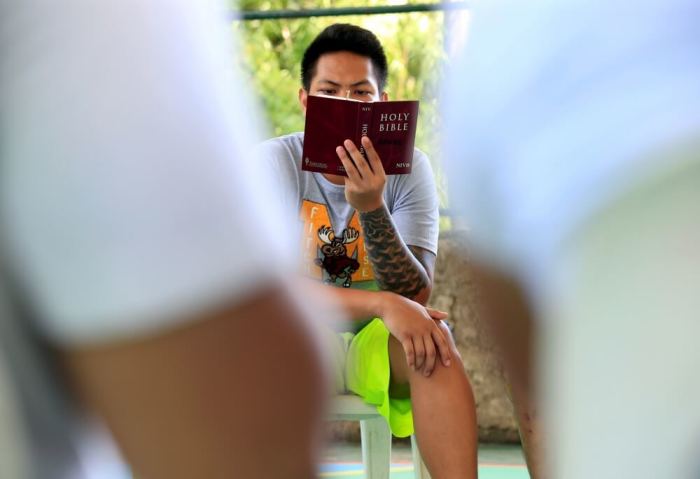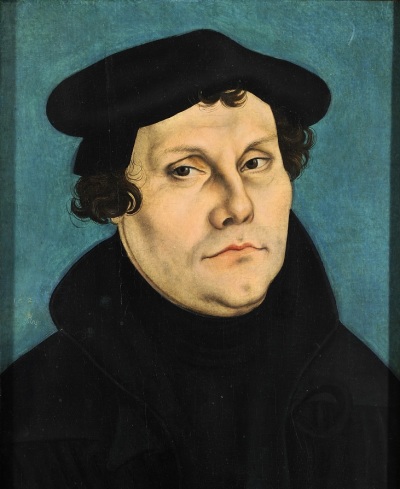Lutheran Prof on Creating New Bible Translation for Reformation's 500th Birthday

A group of Lutheran leaders and scholars are in the process of creating a new translation of the Bible in time for the 500th anniversary of the beginning of the Protestant Reformation.
Known as the Evangelical Heritage Version, the project is being overseen by John Brug, professor-emeritus of Wisconsin Lutheran Seminary.
Brug is serving as general editor and Old Testament editor. The Rev. Brian Keller, pastor of St. Stephen Evangelical Lutheran Church of Adrian, Michigan, is serving as the New Testament editor.
Known as the Wartburg Project, Brug described the process to The Christian Post as a "grassroots translation," which means they are making "extensive use of parish pastors and lay people in the editing and evaluation of the translation."
"We want to keep the Bible close to the Church and involve the Church in the evaluation and refining of our translation," explained Brug.
"Congregations can make free use of the weekly readings for the Church year, which can be downloaded from our Wartburg Project website."
On Oct. 31, 1517, a German monk named Martin Luther nailed 95 theses to a church door in Wittenberg. Among his many issues with the Roman Catholic Church, one was the lack of a widely-distributed Bible in the common language.
An edited transcript of Burg's email interview with CP on Tuesday in which he discusses the reasons for the new translation, the current status of the project, and how it will be distributed once released, can be read below.

CP: Why did you decide to create a new translation of the Bible?
Brug: It seems that there is no longer a consensus translation, which is accepted as the standard version by the majority of evangelical Christians as the KJV and NIV once were. Of the most popular translations, some seem to be moving too far away from a close rendering of the Hebrew and Greek texts. Others seem to be too wooden for contemporary readers. We hope to find the happy middle.
For us, the key word is "balance" — balance of old and new terminology, balance of literal and dynamic equivalent translation practices, balance of preserving the original meaning and English that sounds natural, balance of formality and informality.
We seek a balance between the old and the new. We respect and try to preserve traditional terms that are well established in the worship life of the church, but the EHV does introduce some new terms in those places where a traditional translation no longer communicates clearly. Such new terms will be explained in the footnotes to the translation.
We seek a balance between the poles of so-called literal and dynamic equivalent theories of translation. A translator should not adhere too closely to any one theory of translation because literalistic, word-for-word translations sometimes convey the wrong meaning, or they do not communicate clearly in the receiving language. Overly free translations deprive the reader of some of the expressions, imagery, and style of the original.
It also seemed to us that some contemporary translations are too committed to a shorter form of the biblical text. We place a priority on producing a fuller representation of the biblical text that has been transmitted to us by the Church than many recent translations do. The EHV includes readings which are supported by ancient manuscript evidence that are omitted from many other recent translations, which tend to focus too narrowly on certain parts of the manuscript evidence rather than the whole range. We examine the full range of textual evidence on a case by case basis.
The EHV is committed to using archaeology, geography, and history to provide a clearer understanding of the original meaning of the biblical text, and this will be reflected both in the translation and the footnotes.
CP: What materials are you using for the translation? Earlier English translations, early Greek and Hebrew manuscripts, etc.?
Brug: The base of our translation is provided by the standard Greek and Hebrew texts, but we gladly stand on the shoulders of giants by consulting the full tradition of English Bible translation and the Church's rich heritage of commentaries on the text. The most valuable resources vary for each biblical book.
We try to preserve heritage terms like justification, saints, and so on, and we try to be conscious of the terminology widely used in worship and in the creeds of the Church. We do not want to distance the translation of the Bible too far from the life and heritage of the Church.
CP: What is the status of the project? Is there a fixed release date?
Brug: A sample paperback edition of the New Testament and Psalms will appear, God-willing, early this summer. We expect to finish the translation of the whole Bible during this calendar year, but set-up for printing will still take some time after that before the appearance of the full printed editions. Electronic editions are expected to appear sooner. We already have a number of supplemental products in the works: a harmony of the Gospels, a passion history for use during Lent, and so on.
CP: How do you plan to distribute the new translation once it is completed?
Brug: The publisher of our printed Bibles and full electronic versions of the full Bible is Northwestern Publishing House. We will have a full range of electronic versions, including LOGOS. We rely heavily on our website, our monthly electronic news letter (sign up at our Wartburg Project website for your free copy), and social media like Facebook to promote our translation and related works.
We are willing to negotiate rights for producers of Bible products to use the translation in derivative works. For example, we are happy to discuss the rights to use our Psalms texts in musical compositions with composers.




























